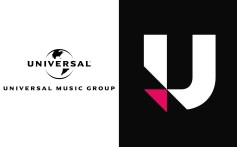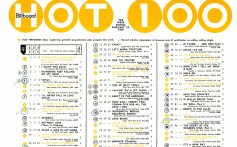Universal Music
Trending on Billboard
A few years into the debate about AI’s potential economic impact on music, the jury is still out.
AI could be great for the music business, enabling new products and creating new revenue streams for artists and songwriters. Universal Music Group (UMG) has said as much. “We believe the commercial opportunity is potentially very significant,” chief digital officer Michael Nash said during the company’s earnings call on Thursday (Oct. 30), a day after it announced a licensing deal with AI music generator Udio. “These new products and services could constitute an important source of incremental additional new future revenue for artists and songwriters.”
Related
Then again, AI could erode record labels and music publishers’ businesses by flooding the internet with inexpensively made music that takes some — not all — of their market share. Record labels have already lost market share to independent artists in recent years, and AI could be either a continuation or acceleration of existing trends.
Two years ago, analysts at Barclays Research were dismissive of AI-generated music’s threat to the established music business. The general population might have access to music-making tools, but, Barclays reasoned, the quality of the music was poor, and songs created by faceless software housed on computer servers couldn’t create the human connection that listeners desire. Record labels and music publishers could be hurt if social platforms pushed AI music, but the money-saving tactic could run into legal roadblocks, they said. For all the initial hoopla about AI’s ability to upset the status quo, too many questions at the time remained unanswered.
Today, though, Barclays is singing a different tune, and advancements in AI platforms have answered some of their earlier questions. Now, the analysts are more convinced of AI music’s potential to erode record labels’ market share and weaken their financial standing. The quality of music has “improved significantly,” they wrote in a Tuesday (Oct. 28) report titled “AI in Music: Danger Zone,” adding that it’s “hard to differentiate between human music and AI music.” Fans still crave connections with human artists, they wrote, but as opposed to their earlier take, they conceded that AI music represents a threat to the music establishment.
Related
In the Barclays analysts’ view, AI is a mixed bag of gains (such as AI-enabled superfan tiers) and losses (lower royalties from social media platforms’ adoption of cheap AI music). Overall, though, they believe the damage that AI can create will outweigh its benefits. Their bottom line: In an average scenario, UMG takes a 1% hit to earnings before interest, taxes, depreciation and amortization (EBITDA) and Warner Music Group’s EBITDA drops 4%. A worst-case scenario calls for deeper losses. A best-case scenario sees AI providing a boost.
Not everybody is in the Barclays camp, however. Despite advancements in the quality of music produced by AI platforms, analysts at J.P. Morgan are sticking with their opinion from 2023 that AI will not have “a meaningful impact on industry revenues.” Analysts wrote in a note to UMG investors on Monday (Oct. 27) that AI risks have been “negated” and “controlled” by the company’s efforts in recent years to get streaming platforms to prioritize and reward professional artists over mass-produced, low-quality recordings.
Like Barclays, J.P. Morgan believes market erosion is a genuine threat to UMG’s market share. But J.P. Morgan analysts see much more upside in AI. (Notably, J.P. Morgan’s analysis was less thorough; unlike Barclays, it didn’t put a dollar value on AI’s potential impact.) They note that UMG will benefit from AI artists’ need for publishers and record labels (which jibes with Billboard’s assessment of Hallwood Media’s impact on Xania Monet’s on-demand streams). AI can also generate revenue streams from new licensing opportunities and make listening to music more enjoyable, they write.
Related
The major labels and publishers haven’t signed or created AI artists yet, but if they do, J.P. Morgan believes they will benefit from economics that are superior to their deals with human artists and songwriters. It’s not a stretch: To capture some of the market share that has shifted to independent artists, UMG has invested heavily in artist services by building up Virgin Music Group and attempting to acquire Downtown Music Holdings (the European Commission will announce its decision on the proposed merger in February 2026). If AI artists are to compete in the marketplace, they will need the same services that are available to human artists, such as promotion, distribution, copyright administration and public relations.
One thing is certain: Because AI music is in its infancy, trying to figure out its long-term trajectory is difficult. When the music industry began navigating the shift from physical to digital in the late ‘90s, few people could have guessed that the marketplace of 2025 would be dominated by subscription royalties and that download revenue would be almost nonexistent. When Napster launched in 1999, nearly a decade before the iPhone debuted, imagining the influence of an app like TikTok would have been nearly impossible. Music companies got to this point by enforcing the value of their intellectual property through a few decades of licensing agreements and lawsuits.
In the near term, expect more deals like UMG’s partnership with Udio. Over the long term, expect to be surprised.
Trending on Billboard
Universal Music Group (UMG) reported solid growth across all three business units on Thursday (Oct. 30), with revenue rising 10.2% in constant currency to 3.02 billion euros ($3.53 billion). Early shipments of Taylor Swift’s The Life of a Showgirl, which had an Oct. 3 street date, helped UMG’s physical sales jump 23% year over year. But the quarter was dominated by subscription gains and strong publishing results. During Thursday’s conference call, the conversation was heavy on AI and UMG’s new partnership with the generative AI platform Udio.
Here are some main takeaways from UMG’s third-quarter results and executives’ comments during Thursday’s conference call.
Related
UMG Announced a Renewed Licensing Deal with YouTube
Usually, a major announcement regarding a leading streaming platform gets its own press release. But during Thursday’s conference call, CEO Lucian Grainge slipped news of UMG’s new licensing deal with YouTube into his opening remarks. It’s the company’s third licensing deal in its “Streaming 2.0” initiative and covers both recorded music and publishing. Previous Streaming 2.0 deals, which the company says prioritize artist-centric principles, were signed with Amazon in December and Spotify in January.
“The agreement includes all aspects of YouTube’s various music services and platforms, embodies our artist centric principles and drives greater monetization for artists and songwriters,” Grainge said. “And as part of our new YouTube deal, we’ve secured really important guardrails and protection for our artists and writers around Gen AI content.”
The Udio Partnership Furthers UMG’s Superfan Ambitions
Some people view a generative AI platform as a means to create music that competes with artists signed to both major and independent record labels. That may have been the common perception of Udio, a popular music-making platform that requires only simple text prompts to create fully formed songs. But on Thursday, UMG made it clear it views its newly signed licensing partnership with Udio as part of its ambitions to reach “superfans,” the people who spend the most time and money on music. That puts Udio in the same category as the long-awaited superfan tiers of subscription services such as Spotify.
Related
“What we’ve announced with Udio, and in terms of artist centricity, what’s significant there is that the product vision is to focus on a superfan experience for customization, a deep engagement [and] hyper-personalization of the experience for fans interacting through AI technology with the artists that they love,” chief digital officer Michael Nash explained during the conference call. Nash called Udio’s new platform, which will launch in 2026, a “subscription service [that] will transform the user engagement experience, creating a license to protect the environment, to customize, stream and share music responsibly on the audio platform.”
The Artist is Central to AI Music
UMG executives were coy when asked for specifics about the Udio partnership, but they repeatedly emphasized that any AI music platform that partners with UMG will have an artist-centric approach. Nash mentioned UMG’s just-announced partnership with Stability AI, a startup that builds generative AI models for audio and video, to create new tools that benefit its artists and songwriters.
“The economics of the music ecosystem are really driven by fans’ desire to engage with artists and by fans’ desire to participate in music culture,” Nash explained. “We’re envisioning products that deepen both of those things.” Nash pointed to UMG’s internal research of the U.S. market that revealed 50% of music consumers are interested in AI “in relationship to their music experience.” But fake artists ranked lowest amongst U.S. consumers. “There’s a lack of traction” amongst fake artists, he noted, “other than the occasional novelty phenomenon that may capture some headlines.”
Related
Short-Form Video Has Caused a “Disruption” in Ad-Supported Royalties
People love watching short videos on platforms such as TikTok and YouTube Shorts. Unfortunately for record labels and music publishers, newer short-form platforms don’t monetize music as well as older, long-form platforms with established advertising businesses. As a result, UMG’s streaming revenue — everything other than subscriptions — was flat in constant currency. Other than digital downloads, which were also flat, every other aspect of UMG’s recorded music division posted gains in the quarter. Nash said UMG’s recent licensing deals, including the one with YouTube that was announced during the conference call, were the result of “broad-based efforts” to address the “disruption” to ad-supported royalties caused by short-form video and efforts to better monetize it.
UMG is Making Progress with Japanese Music — Both Inside and Outside of the Country
Japanese music has a reputation for not traveling well, but Grainge highlighted the success of Japanese artists outside of their home country. In March, BABYMETAL signed to Capitol Music Group in the U.S. and, according to Grainge, became the first Japanese artist ever to reach the top 10 of the Billboard 200 album chart with its album Metal Forth. Earlier this year, Grainge added, UMG’s J-pop artist Ado played to 500,000 fans in 33 cities across Asia, Europe, the U.S. and Latin America. UMG fared well inside Japan, too, led by releases from Mrs. GREEN APPLE and Fujii Kaze, with strong sales there helping drive UMG’s 23% increase in physical sales.
Additionally, Grainge said that UMG recently increased its majority stake in Japanese label and artist management company A-Sketch by acquiring the minority stake of KDDI Corporation. UMG initially acquired its majority interest in February by purchasing the stake of the company’s co-founder, Amuse.
Related
The Best Subscription Growth in Q3 Came from Outside the U.S.
Growth in subscribers in the top 10 markets, not price increases, was the major factor in UMG’s 8.7% (in constant currency) subscription revenue growth, said CFO Matt Ellis. But the U.S. wasn’t at the top of the list. UMG saw double-digit subscription growth in China, Brazil and Mexico, while in the U.S., it saw high single-digit growth. Four of UMG’s top five streaming services delivered double-digit or high single-digit revenue growth.
With 8.7% subscription growth, UMG was within the 8% to 10% range it targets for long-term growth. Good thing, too, since investors see subscription growth as an all-important metric when assessing UMG’s market value. “We remain encouraged by the trajectory of the subscription business,” said Ellis.
Trending on Billboard
On the strength of top sellers from the KPop Demon Hunters soundtrack, Sabrina Carpenter and Morgan Wallen, Universal Music Group’s revenue grew 5.3% to 3.02 billion euros ($3.53 billion at the quarter’s average euro-to-dollar exchange rate) in the third quarter of 2025, the company announced Thursday (Oct. 30). In constant currency, which removes the impact of considerable foreign exchange fluctuations since the beginning of the year, UMG’s revenue rose 10.2% in the quarter.
With all three of UMG’s business units posting gains, adjusted earnings before interest, taxes, depreciation and amortization (EBITDA), a common measure of profitability, increased 6.9% (11.6% in constant currency) to 594 million euros ($694 million). Adjusted EBITDA margin — EBITDA as a percentage of revenue — improved to 22.0% from 21.6%.
Related
CEO Lucian Grainge emphasized the company’s long-term value creation and strategic efforts that don’t show up in the financial results. “Importantly, we continued to drive progress on our strategic plans, including our artists’ and songwriters’ creative and commercial success, our global expansion, the industry’s embrace of our responsible AI initiatives and the continued implementation of Streaming 2.0.,” he said in a statement. A day earlier, UMG announced a settlement and licensing agreement with AI music generator Udio. Just hours before earnings were released, UMG trumpeted a partnership with Stability AI to create tools for artists and producers that are powered by “responsibly” trained generative AI.
In the recorded music division, revenue rose 3.6% (8.3% in constant currency) from the prior-year period to 2.22 billion euros ($2.60 billion). Recorded music subscription revenue improved 3.6% (8.7% in constant currency) to 1.52 billion euros ($1.78 billion), in line with the company’s projections of 8% to 10% annual growth. The company said subscription growth came primarily from an increase in the number of global subscribers.
Other streaming revenue, which included ad-supported streaming, fell 4.8% (flat in constant currency) to 337 million euros ($394 million). The company attributed the decline to a shift in streaming activity to poorly monetized short-form videos from more effectively monetized video platforms.
Related
Physical sales jumped 18.4% (23.1% in constant currency) to 341 million euros ($399 million) due to initial shipments of Taylor Swift’s The Life of a Showgirl, which had a street date after the end of the third quarter. Licensing and other revenue improved 0.9% (4.1% in constant currency) to 328 million euros ($383 million). Digital downloads were down 7.1% (unchanged in constant currency) to 39 million euros ($46 million).
Music publishing revenue improved 8.6% (13.6% in constant currency) to 543 million euros ($635 million). Publishing’s digital revenue grew 10.8% (16.8% in constant currency) to 327 million euros ($382 million) due to streaming growth and subscription revenue gains. Performance revenue rose 13.9% (17.3% in constant currency) to 115 million euros ($134 million). Synch revenue fell 1.6% (rose 3.3% in constant currency) to 63 million euros ($74 million). Mechanical royalties were down 7.1% (3.7% in constant currency) to 26 million euros ($30 million).
Merchandising and other revenue grew 9.3% (15.6% in constant currency) to 259 million euros ($303 million). Lower direct-to-consumer sales were more than offset by growth in touring merchandise sales.
Universal Music Group (UMG) and WTSL, an investment firm run by ex-Endeavor executive chairman Patrick Whitesell with backing from Silver Lake, have formed a joint venture to “unlock opportunities” for UMG’s biggest artists across film, TV, fashion, consumer products, branded experiences and more, the companies announced on Thursday (June 12).
This certainly isn’t new ground for UMG, whose chairman/CEO Lucian Grainge called superfandom “the core component of music economics” at the company’s capital markets day last September. Indeed, the music giant has been a force behind projects like ABBA‘s smash hit avatar show; become a major investor in blockbuster artist-led brands including Dr. Dre‘s Apple-acquired company Beats; and even opened a UMusic hotel in Madrid back in 2023. But the joint venture announced on Thursday aims to create fan experiences and artist opportunities on a grander scale than any of those projects, the companies say.
The partnership reflects a shift in how the biggest stars and entertainment companies are approaching monetizing music rights. Home to superstars like Taylor Swift, UMG is looking to bring atypical entrepreneurial opportunities to its biggest artists. In Whitesell, they found an entertainment mogul who is known, as the Financial Times once wrote, for having helped rewrite “the Hollywood script.”
Trending on Billboard
“This is about building the future of artist [intellectual property] with the scale and ambition it deserves,” Whitesell, who co-founded the global talent company WME, said in a statement about the deal.
The joint venture, which serves as WTSL’s debut, did not disclose any projects it currently has in the works. What’s clear is that it aims to leverage UMG’s talent and WTSL’s networks to create commerical opportunities in film, TV, fashion, consumer products, branding and other ventures that rely on music rights to “build long-term enterprises, expanding from one-off licensing into owned, repeatable, and equity-driven ventures,” according to a statement.
“We exist at the center of a vibrant ecosystem of partners from the worlds of technology, brands, retailers and media who recognize the power of our artists to shape culture globally,” Grainge said in a statement. “With this new venture we will be able to leverage Patrick’s deep experience in successfully creating non-traditional business models with world-class IP to accelerate the expansion and monetization of our ecosystem to the benefit of our artists and partners.”

The three major music companies — Sony Music, Universal Music Group and Warner Music Group — are in talks with AI music companies Suno and Udio to license their works as training data, despite suing the two startups for infringement “on an almost unimaginable scale” last summer. Now, executives in the “ethical” or “responsible” AI music space are voicing displeasure that the alleged infringers could potentially benefit from their actions.
Several of those ethical AI companies said they were led to believe they would be rewarded by the record labels for going through the tough process of licensing music from the beginning, in what one AI music company founder previously told Billboard would be “a carrot and stick approach to AI,” penalizing those who raced ahead and trained models without permission or compensation.
Trending on Billboard
“That’s all out the window,” that founder says now. “I was talking to another founder that does ethical AI voice models, and he told me, ‘F–k it. I don’t care anymore. Why does it matter to be ethical if we just get left behind?’”
Ed Newton-Rex, founder of non-profit Fairly Trained, which certifies ethically-trained AI models, adds: “If I were running a startup that had tried to do the right thing — respecting creators’ rights — and investors had rejected me because I wasn’t exploiting copyrighted work like so many others, and then this happened? I’d definitely be pissed off.”
Tracy Chan, CEO of AI music company Splash, told Billboard via email that she stands by her decision to license music from the start. “At Splash, being ethically trained wasn’t a debate — it was obvious,” she says. “We’re musicians and technologists. We believe AI should amplify creativity, not exploit it. We don’t need to scrape the world’s music to make that happen.”
It remains unclear how far along these licensing talks are between the major music companies and Suno and Udio, and if deals will even come to fruition to avert the blockbuster lawsuits. It’s common in costly and lengthy litigation like this for the two sides to discuss what it would look like to settle the dispute outside of court. Plus, licensing is what the majors have wanted from AI companies all along — does it matter how they come to it?
Multiple executives expressed fear that if the majors ditch the lawsuit and go for deals, they will set a bad precedent for the entire business. “Basically, if they do this deal, I think it would send a message to big tech that if you want to disrupt the music industry, you can do whatever you want and then ask for forgiveness later,” says Anthony Demekhin, CEO/co-founder of Tuney.
This, however, is not the first time the music business has considered a partnership with tech companies that were once their enemy. YouTube, for example, initially launched without properly licensing all of the music on its platform first. In his 2024 New Years’ address to staff, Lucian Grainge, CEO/chairman of UMG, alluded to this, and how he would do it differently this time with his so-called “responsible AI” initiative. “In the past, new and often disruptive technology was simply released into the world, leaving the music community to develop the model by which artists would be fairly compensated and their rights protected,” he wrote, adding that “in a sharp break with the past,” UMG had formed a partnership with YouTube to “give artists a seat at the table” to shape the company’s AI products, and that the company would also collaborate “with several [other] platforms on numerous opportunities and approaches” in the AI space.
Another part of Grainge’s “responsible AI” initiative was “to lobby for ‘guardrails,’ that is public policies setting basic rules for AI.” Mike Pelczynski, co-founder of ethical AI voice company Voice-Swap, also worries that if these deals go through, they could weaken the music industry’s messaging to Capitol Hill, where bills like the NO FAKES Act are still in flux. “All the messaging we had before, all the hard-lining about responsible AI from the beginning, it’s gone,” he says. “Now, if policy makers look at [the music business] they might say, ‘Wait, what side should we take? Where do you stand?’”
If talks about licenses for Suno and Udio move forward, determining exactly how that license works, and how artists will be paid, will be complex. To date, almost all “ethical” AI companies are licensing their musical training data from production libraries, which offer simple, one-stop licenses for songs. Alex Bestall, CEO of music production house and AI company Rightsify, says that the structure of those deals are typically “flat-fee blanket licenses for a fixed term, often one to three years or in some cases perpetuity… all data licensing [music or otherwise] is pretty standardized at this point.”
It’s unclear if the deals the majors have discussed with Suno and Udio will follow this framework, but if they did, the question then comes — how do the majors divide up those fees for their artists and writers? The Wall Street Journal reported that “the [music] companies want the startups to develop fingerprinting and attribution technology — similar to YouTube’s content ID — to track when and how a song is used.” In that scenario, the money received would be given to signees based on usage.
While there are a few startups working on music attribution technology right now, multiple experts tell Billboard they don’t think the tech is ready yet. “Attribution is nowhere,” says Newton-Rex, who also previously worked as vp of audio at Stability AI. “It’s not even close. There’s no system that I have seen that would do a decent job of accurately assigning attribution to what has inspired a given song.”
Even the possibility of deals between the parties has sparked a larger conversation about how to handle tech companies who ask for forgiveness — and not for permission — from the music business.
“If the two biggest offenders actually become the legal standard, it’s effectively like making Pirate Bay into Spotify,” says Demekhin. “I understand it from a business perspective because it’s the path of least resistance [to settle and get a license now]. But this could send a message to tech that could bite the industry on the next wave.”
Universal Music, Warner Music and Sony Music are in talks with Udio and Suno to license their music to the artificial intelligence startups, Billboard has confirmed, in deals that could help settle blockbuster lawsuits over AI music.
A year after the labels filed billion-dollar copyright cases against Udio and Suno, all three majors are discussing deals in which they would collect fees and receive equity in return for allowing the startups to use music to train their AI models, according to sources with knowledge of the talks. Bloomberg first reported the news on Sunday (June 1).
If reached, such deals would help settle the litigation and establish an influential precedent for how AI companies pay artists and music companies going forward, according to the sources, who requested anonymity to discuss the talks freely.
Trending on Billboard
Such an agreement would mark an abrupt end to a dispute that each side has framed as an existential clash over the future of music. The labels say the startups have stolen music on an “unimaginable scale” to build their models and are “trampling the rights of copyright owners”; Suno and Udio argue back that the music giants are abusing intellectual property to crush upstart competition from firms they see as a “threat to their market share.”
Settlement talks are a common and continuous feature of almost any litigation and do not necessarily indicate that any kind of deal is imminent. It’s unclear how advanced such negotiations are, or what exactly each side would be getting. And striking an actual deal will require sorting out many complex and novel issues relating to brand-new technologies and business models.
Reps for all three majors declined to comment. Suno and Udio did not immediately return requests for comment. A rep for the RIAA, which helped coordinate the lawsuits, declined to comment.
If Suno and Udio do grant equity to the majors in an eventual settlement, it will call to mind the deals struck by Spotify in the late 2000s, in which the upstart technology company gave the music industry a partial ownership stake in return for business-critical content. Those deals turned out to be massively lucrative for the labels and helped Spotify grow into a streaming behemoth.
The cases against Udio and Suno are two of many lawsuits filed against AI firms by book authors, visual artists, newspaper publishers and other creative industries, who have argued AI companies are violating copyrights on a massive scale by using copyrighted works to train their models. AI firms argue that it’s legal fair use, transforming all those old works into “outputs” that are entirely new.
That trillion-dollar question remains unanswered in the courts, where many of the lawsuits, including those against Suno and Udio, are still in the earliest stages. But last month, the U.S. Copyright Office came out against the AI firms, releasing a report that said training was likely not fair use.
“Making commercial use of vast troves of copyrighted works to produce expressive content that competes with them in existing markets, especially where this is accomplished through illegal access, goes beyond established fair use boundaries,” the office wrote in the report.
Even with the legal landscape unsettled, some content companies have struck deals with AI firms. Just last week, the New York Times — which is actively litigating one of the copyright cases — struck a deal to license its editorial content to Amazon for AI training. Last fall, Microsoft signed a deal with HarperCollins to use the book publisher’s nonfiction works for AI model training.
Music companies have not struck any such sweeping deals, and instead have preferred more limited partnerships with tech companies for “ethical” AI tools. UMG signed a deal last summer with SoundLabs for an AI-powered voice tool for artists and another one in November with an AI music company called KLAY. Sony made an early-stage investment in March in a licensed AI platform called Vermillio.
Now that all the major music companies have reported earnings for the quarter ended March 31, it’s a good time to reflect on the notable performances in the bunch. Most companies posted good results and showed that music is a reliable business during times of uncertainty, with nearly all trending in the right direction (though companies not mentioned here didn’t necessarily have something to crow about). But because companies naturally experience ebbs and flows — a slow new release schedule or heavy sales of low-margin vinyl records can wreak havoc on market perceptions — the results for any one quarter won’t tell the entire story.
Below, I run down a few notable and/or interesting highlights from the latest earnings releases. For a full recap of earnings reports, refer to Billboard’s 2025 Q1 earnings roundup, which provides quick summaries of music companies’ earnings reports issued from April 29 to May 28. Best top-line revenue growth: 22% by CTS Eventim
Trending on Billboard
German concert promoter and ticketing company CTS Eventim’s top-line revenue got a boost from its 2024 acquisitions of See Tickets and France Billet, as consolidated revenue jumped 22.0% to 499 million euros ($525 million). Growth of the existing business was “slightly higher” than a strong prior-year period, CFO Holger Hohrein said on the May 22 earnings call. Ticketing revenue improved 16.9% to 214 million euros, a record for the first quarter. Retail tickets sold improved 42.1% to 40.5 million. Live entertainment revenue increased 24% to 292 million euros ($316 million), also a first-quarter record. Best streaming growth, record label: 9.5% by Universal Music Group (UMG)
Subscriptions helped offset a lackluster 2.9% increase in other streaming revenue, including ad-supported streaming, resulting in overall streaming growth of 9.5%. UMG executives have told investors they can achieve long-term recorded music subscription growth of 8% to 10% through 2028. While the figure bounces from quarter to quarter — and has fallen well below the target range — UMG landed above the high end of the target by achieving recorded music subscription revenue growth of 11.5% in the first quarter. The subscription growth was “driven primarily by growth in the number of subscribers, and to a much lesser extent, helped by certain price increases,” COO Boyd Muir said during the April 29 earnings call. Best subscription growth, streaming platform: 16.6% by Tencent Music Entertainment (TME)
TME’s subscription growth dominated the quarter for two reasons. First, average revenue per user improved 7.5% to $1.57, in part from the popularity of the Super VIP tier that costs five times as much as a normal subscription. Second, the number of subscribers grew 8.3% to 122.9 million. With more people paying a higher monthly fee, subscription growth rose to 17%. The ripple effects could be seen elsewhere: gross profit margin rose to 44.1% from 40.9% in the year-ago period, and the percentage of paying subscribers versus all music users improved to 22.1% from 19.6% a year earlier. Most surprising new business segment: Tencent Music Entertainment’s physical music sales.
In the first quarter, TME had a 10-day “head-start presale” of the Teens in Times album Beyond Utopia. TME also sold physical albums for One Hundred Thousand Volts by Silence Wang. For the K-pop artist G-Dragon, TME conducted a presale of light sticks and other products and offered limited-edition merchandise to buyers of his digital albums. Most impactful executive quotes: Sphere Entertainment Co. Executive chairman/CEO James Dolan and Vivid Seats CEO Stan Chia
Two vastly different companies provided contrasting takes on the state of live music demand. Amidst reports of falling international tourism to the U.S., Sphere Entertainment Co. CEO James Dolan downplayed concerns about visits to Las Vegas and attendance at the Sphere venue. Even if tourism took a hit, Dolan explained that “demand exceeds capacity, so we have room to absorb any issues from that.”
On the other hand, Stan Chia, CEO of secondary tickets marketplace Vivid Seats, described a more challenging landscape. The quarter “fell short of our expectations,” he said during the May 6 earnings call. Chia blamed the shortfall on “robust competitive intensity” and “softening industry trends amidst consumer uncertainty.” What’s more, he added, “economic and political volatility has impacted consumer sentiment, and this uncertainty can also impact how and when artists and rights holders go to market.” A 14% decline in revenue, combined with Chia’s comments and the company’s suspension of full-year guidance, caused a 38% one-day decline in Vivid Seats’ share price.
Universal Music Group (UMG) announced on Tuesday (May 20) that it will move its East Coast headquarters to Penn 2, a recently redeveloped building that sits on top of the transportation hub Penn Station. “Located in the heart of Midtown Manhattan and literally adjacent to Madison Square Garden, one of music’s most storied venues where […]
Companies frequently urge investors not to read too much into any one quarter’s results. After all, even large, diversified businesses don’t always take a neat, linear path to consistent annual gains, and any single reporting period can contain oddities that skew the results favorably or unfavorably. But most public companies report results every quarter and, for better or worse, we onlookers read as much into the results as possible.
With that caveat in mind, here are some takeaways from the earnings releases through Thursday (May 15). Note that while most music companies, including the largest ones, have already issued earnings, there are a couple more to come: CTS Eventim will release some first-quarter figures on May 22 and Reservoir Media reports on May 28.
1. Some Margins Improved from Cost Savings
Music companies — like employers across the spectrum — have thinned their headcounts to retool, refocus and ultimately cut down on expenses. Q1 results showed some notable improvements in companies’ bottom lines.
Trending on Billboard
Spotify started seeing bottom-line growth in 2024 after cutting about a quarter of its headcount in 2023. The Stockholm-based music and podcast giant’s operating margin rose to 12.1% from 4.6% in the first quarter of 2024 — an improvement of 341 million euros ($380 million) — while gross margin (gross profit as a percentage of revenue) rose to 31.6% from 27.6%. Gross margin is a good proxy for what Spotify keeps after paying for content costs (it also includes some smaller expenses such as credit card transaction fees and hosting costs). After keeping prices flat for more than a decade, gross profit improved after Spotify began raising prices in 2023.
Operating profit, not gross profit, shows the impact of layoffs (salary expenses are deducted from gross profit to calculate operating profit). Spotify’s operating profit, as a percentage of revenue, improved to 12.1% from 4.6% in the first quarter of 2024. That’s a huge improvement in 12 months, but it’s more remarkable considering the company’s operating profit percentage was negative 5.1% in the first quarter of 2023. CEO Daniel Ek’s controversial decision to make Spotify “relentlessly resourceful” by eliminating thousands of jobs has paid dividends for the company.
Lower expenses also helped the Sphere venue in Las Vegas show improvement in operating margin. Sphere’s sales, general and administrative expenses fell 12% as the company identified costs to reduce, including corporate support functions, Sphere Entertainment Co. CFO Robert Langer said during the May 8 earnings call. That helped offset a 12.8% decline in revenue due to fewer events being hosted by the one-of-a-kind venue. The opposing growth rates cancelled each other out, and Sphere’s operating income was flat in the quarter. Investors apparently liked Sphere’s ability to reduce costs: The share price of its parent company, Sphere Entertainment Co., surged 6% the day of the earnings release.
Over at Universal Music Group (UMG), which embarked on a cost savings plan in early 2024, the company’s adjusted earnings before interest, taxes, depreciation and amortization (EBITDA) margin was flat at 22.8%. Though the company’s global head count rose slightly to 10,346 on Dec. 31, 2024, from 10,290 on Dec. 31, 2023, according to its annual reports, the amount spent on salaries and benefits fell 14% to 1.79 billion euros ($1.94 billion) in 2024.
As for the other two majors, Sony’s operating margin improved to 18.0% from 16.9%, while the operating income before depreciation and amortization (OIBDA) margin at Warner Music Group (WMG) fell to 20.4% from 20.9%, due primarily to a change in revenue mix (meaning there was a higher proportion of low-margin physical sales compared to the prior-year period), though it was partially offset by savings from restructuring. WMG’s operating margin jumped to 11.3% from 8.0% due in part to a decrease in restructuring charges incurred in the prior year.
2. Subscriptions Lead the Way
Two companies had impressive subscriber gains in the quarter.
Spotify’s Premium revenue was up 16% year-over-year, and average revenue per user (ARPU) was up 4%. Subscription revenue was 90% of Spotify’s total revenue, the highest mark since Q3 2020 when advertising dried up — and subscription revenue exploded — at the onset of the pandemic. In fact, subscriptions have been Spotify’s workhorse in recent years, with subscription revenue growing 39.0% over the past two years compared to 27.4% for advertising revenue. After two rounds of price increases in the U.S. and U.K., plus hikes in many other countries, ARPU grew 9.5% in that two-year span.
Meanwhile, at Tencent Music Entertainment (TME), subscription revenue was up 16.6% and ARPU was up 7.5%. TME did not provide an updated subscriber count for its Super VIP tier — it’s still listed at 10 million-plus — but the company did disclose that high-quality audio and other perks are driving Super VIP conversions. Given that Super VIP costs five times the normal subscription price, it makes sense that it was the primary driver of the 7.5% jump in ARPU.
This is a case of the spoils going to the two largest music subscription services by subscriber count. MIDiA Research’s music subscription market shares for Q4 2024 put Spotify at No. 1 with 32% and TME at No. 2 with 15%. Spotify finished Q1 with 268 million paying customers (plus another 423 million ad-free listeners), while TME had 122.9 million.
Some other subscription services have been performing well, too, although only one other publicly traded music streaming company has released detailed financial statements for Q1. A revealing comment came from UMG, which saw double-digit revenue growth from four of its top 10 streaming partners and high single-digit growth at a fifth, the company said during its April 29 earnings call. Billboard believes two of the top four partners were likely Spotify and TME. The other double-digit growth services are anyone’s guess, but it probably wasn’t Deezer — the company’s total revenue rose just 1% in Q1 as its subscriber count fell 5.4%.
3. Advertising revenue was unsurprisingly mediocre but not terrible.
With the subscription business booming, there’s less pressure on the advertising side of music streaming to deliver value for platforms and rights owners. Good thing, too, because advertising hasn’t delivered much growth lately. In the U.S., advertising-based streaming royalties’ share of total recorded music revenues fell to 10.4% in 2024 from 10.9% in 2023 and 11.4% in both 2021 and 2022.
The numbers looked better in Q1 for Spotify, whose ad revenue rose 8% year-over-year (5% at constant currency). But because Spotify’s subscription business is faring better, advertising’s share of Spotify’s total revenue fell to 10.0% from 10.7% in the prior-year period. In fact, 10.0% was the lowest share for Spotify’s advertising since the early pandemic — 8.0%, 6.9%, and 9.4% in Q1, Q2, and Q3 of 2020, respectively.
Advertising is the lifeblood of the radio business. That explains why radio companies’ stock prices have fallen sharply over the last two years. iHeartMedia revenue rose 1% on the strength of a 16% gain in digital revenue, although the multi-sector segment that houses its broadcast radio business was down 4%. U.S. tariff policy has injected uncertainty into media companies’ outlooks, but iHeartMedia CEO Bob Pittman said on Monday (May 12) that iHeartMedia was seeing “generally stable ad spend.”
The same story played out at other radio companies: Total revenue change wasn’t bad because digital gains helped compensate for losses in broadcast ad revenue. Cumulus Media’s revenue fell 6.4% as broadcast dropped nearly 11% and digital gained 6.1%. Townsquare Media’s revenue fell 1% as gains in digital advertising (up 7.6%) and subscriptions (up 4.2%) almost offset a 9.1% decline in broadcast advertising.
Strong subscription revenue helped Universal Music Group’s first quarter revenue rise 11.8% year over year (or 9.5% in constant currency) to 2.9 billion euros ($3.05 billion at the average exchange rate in the first quarter), the company announced Tuesday (April 29). Adjusted earnings before interest, taxes, depreciation and amortization (EBITDA) also rose 11.8%, to 661 […]

 State Champ Radio
State Champ Radio 









